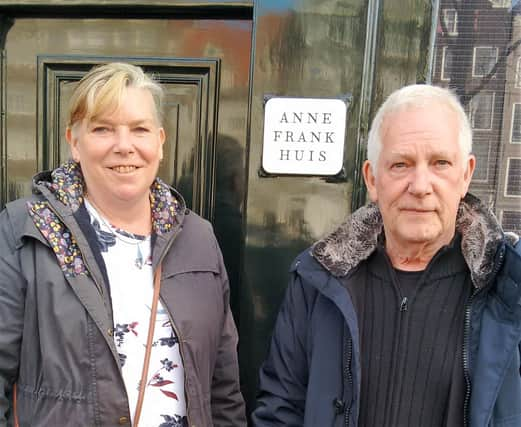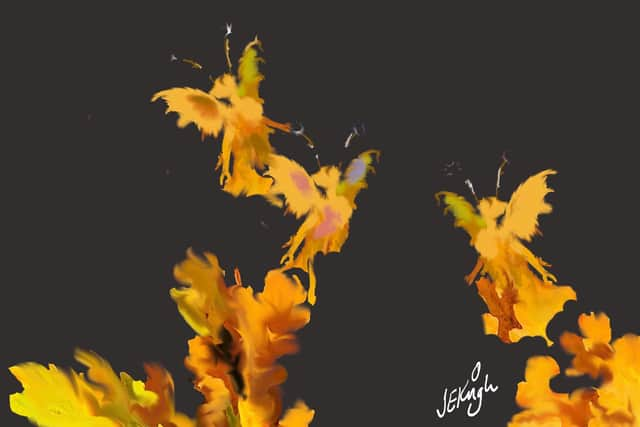Chichester man with sight loss hopes his poetry inspires


John Knight, 73, has been creative for as long as he can remember, and he continues to be so while adjusting to life with dry age-related macular degeneration (AMD) – a form of macular disease. It is an incurable condition which causes loss of central vision over time.
Be it poetry, illustrating or painting, John has been keen to continue doing the things he loves during retirement, after his AMD diagnosis in 2018.
Advertisement
Hide AdAdvertisement
Hide AdThe former Navy engineer also hopes to inspire others through his work.
Mr Knight said: “When you’re a creative type, you just want people to look at your drawings or read your poetry and to appreciate it. It’s good when someone on Facebook tells me they like something I’ve done and shared, but it’s just to help make other people happy.
“One of the things I think when I’m putting a poem together is, ‘will somebody read this and enjoy it and like it?’ But there are times when you think, ‘will they get anything out of it?’ Sometimes I think that somebody might get inspiration from something that’s amused them and pleased them.”
He has written about sight loss in his poetry including one piece which compares falling leaves to dancing fairies – a nod to visual hallucinations caused by sight loss, known as Charles Bonnet syndrome. Leading sight loss charity the Macular Society reports these hallucination affect up to half of all people with a sight loss condition and vary in form from shapes and colours, to others seeing animals, people or even disembodied faces.
Advertisement
Hide AdAdvertisement
Hide AdMr Knight said: “I have done a few poems about sight loss. I think at the moment I’m a bit obsessed with fairies. Not that I’ve seen any! And one of my poems is about the fairies dancing in the air when in reality it’s the leaves falling.


“It’s the message of being able to do something, being able to carry on doing something you’ve always enjoyed, even though you live with sight loss and it’s very important. I think that eventually I know that I will lose the ability to do these things, so it’s very important that I make the best of what I can see and do now.
“I notice things now that I never looked at before. We walk our dog every morning in the woods and I see things that before I would have just passed by, really. But now I look at things differently, because I think to myself, well, maybe in two or three years’ time I won’t be able to see them.”
Mr Knight was also a cartoonist during his days in the Royal Navy, alongside his job as a weapons engineer. Through his life experiences, and as a result of 20 years in the Armed Forces, he has found a way of putting sight loss into his own perspective.
Advertisement
Hide AdAdvertisement
Hide Ad“I’ve never been worried about my AMD, not particularly,” he said. “I’ve just taken it in my stride. I was in the Navy for many years and I saw guys coming back from Afghanistan in very bad ways. I see my condition as quite slight in comparison, it’s easier to live with than missing limbs.”
He added: “I would say ‘don’t panic’, don’t panic because support is available and there are many thousands of people with this condition and other conditions leading to sight loss. Seek out the support and take whatever help is offered, make the best of it and certainly don’t keep it to yourself.”
The Macular Society charity reports macular disease is the biggest cause of sight loss in the UK. Nearly 1.5 million people are currently affected and many more are at risk. The disease can have a devastating effect on people’s lives, leaving them unable to drive, read or see faces.
Many people affected describe losing their sight as being similar to bereavement. There is still no cure and most types of the disease are not treatable.
For more information on macular disease, call the Macular Society on 0300 3030 111 or email [email protected]